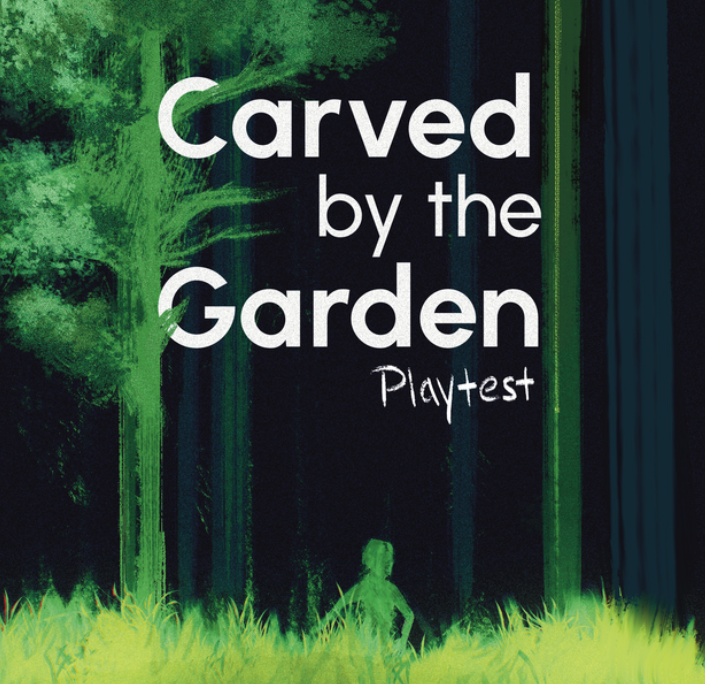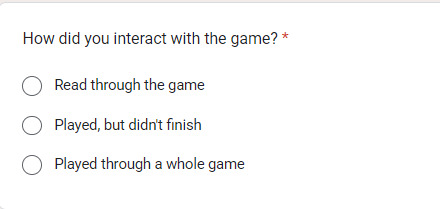Quick note: Hello! I’m Cassi! I don’t design large sprawling tabletop RPGs with complex mechanics. That said, Dicebreaker named me Rising Star Tabletop Designer in 2023–So I must know something. Haha. That said, if you’re designing a complex game, I recommend reading what I have here, and then taking a look at how bigger organizations address player feedback for heavier works (like how Wizards does with D&D).
When I send out a playtest survey, I look for several things:
- Actionable feedback
- Marketing language
- Game sentiments overall (may not be actionable, but when combined with multiple survey inputs, it’s very helpful.)

First, as I’m writing a game, I note the insecurities that pop up. “Is this good enough” isn’t specific, but maybe I’m worried a rule section isn’t clear or the sequence of information is confusing. I can ask a direct question about it in the survey.
For example, in my latest game, Carved by the Garden, I worried the front matter wasn’t in the best order. I’m directly asking playtesters if they encounter any friction while reading through it. I’m sure there will be varied responses, but by specifically inviting them to tell me about their experience, I get a more holistic view than if one person had difficulty and used their entire general feedback section to let me know.
Second, as I’m building the survey, I make sure to include a section that denotes if a tester is a reader or actually engaging with the mechanics in a play session. Both people have value, but it helps me weigh results and give context to further feedback.

Next, I might ask if players have familiarity with the system I used. I want feedback from people who are new to the system and veterans.
The new folks can help me onboard new players and the veterans can give advice on where they’ve seen things handled better.
I also have several generic questions like “What difficulties did you encounter” or “did something frustrate you” because playtesters might not tell you unless you specifically ask for that kind of feedback. Don’t use these as your only questions or input will be less valuable.
Then I have marketing questions. These are really valuable, as I always run out of steam in the marketing phase.
- What was your favorite X?
- How would you describe this game to a friend?
- Is there a quote I can use from you in advertising?
Another important question in the marketing section: Does this game deliver on its promise to X? If not, where does it fail? Sometimes there is a mismatch between marketing and the actual game, so this question helps me realign.
Lastly, I ask for permission to credit playtesters! I think this is such an important step. Providing thoughtful feedback is time consuming, and I want my playtesters to know their input is valued.
Overall, my advice is to keep your surveys short and focused. Offer an area for general feedback, but don’t rely on that section to improve your game or project. Pick specific areas where you feel insecure, and see where they can be poked.
Happy designing!